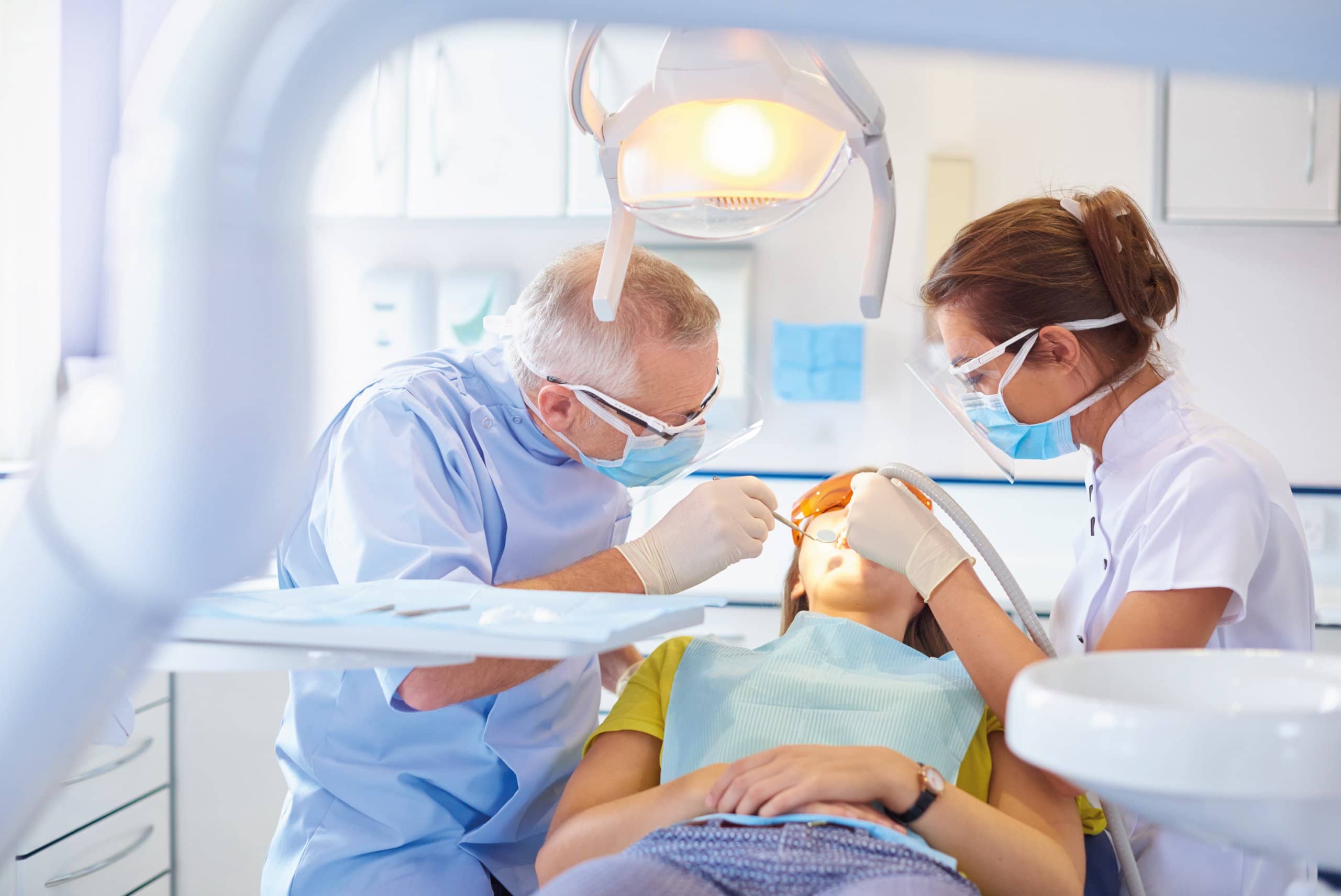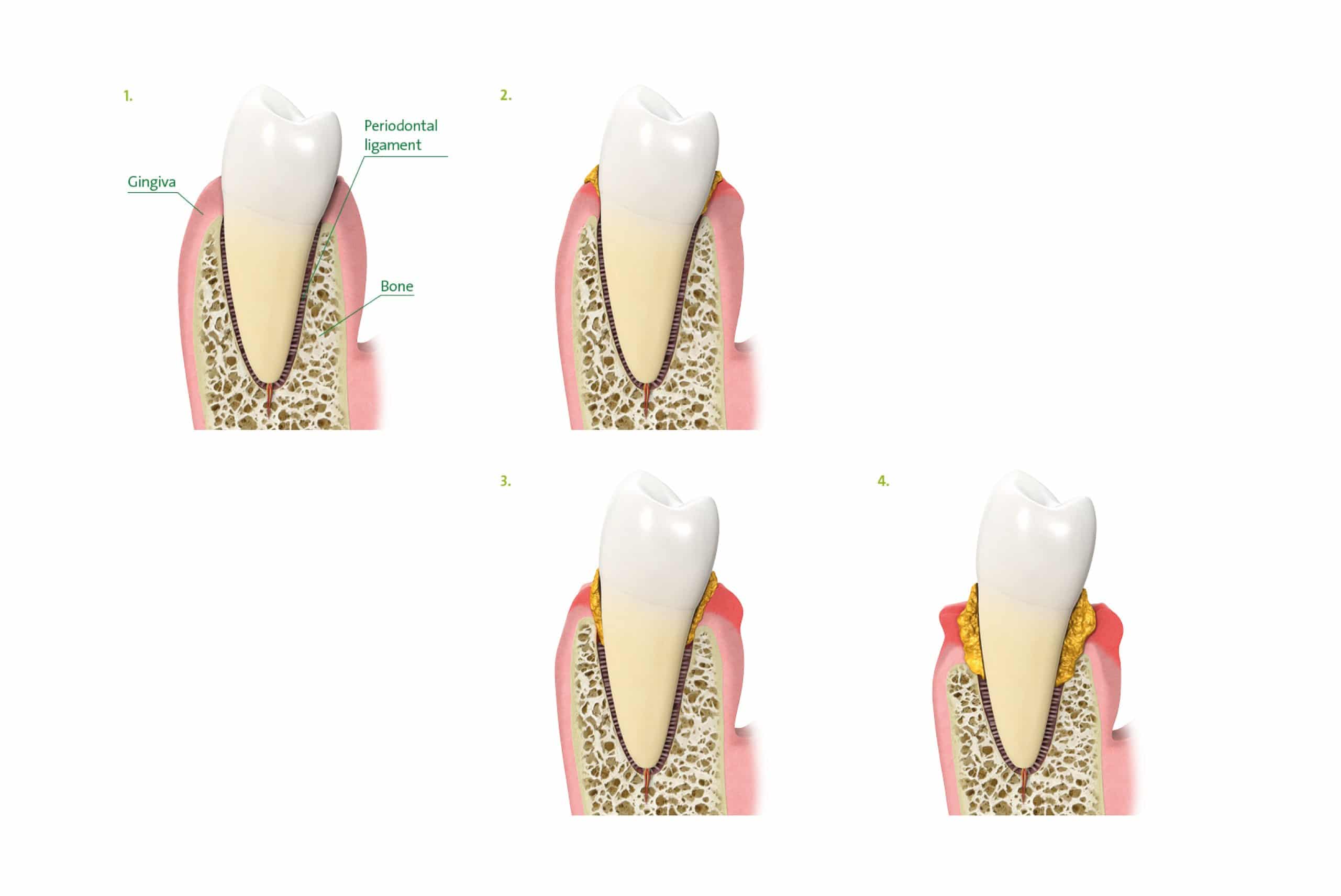
What is Periodontal Disease?
Periodontal disease is a condition that affects the gums and the structures supporting your teeth. It often begins as gingivitis, where the gums become red, swollen, and may bleed during brushing or eating. Bad breath is also a common symptom.
Gingivitis is caused by a buildup of plaque, a sticky film of bacteria. If not removed, it can harden into tartar and lead to further irritation.
Without treatment, gingivitis can progress to periodontitis, where inflammation spreads below the gum line and affects the bone. This can result in gum recession, loose teeth, and eventually tooth loss.
The Impact of Periodontal Disease
Although periodontal disease begins in the gums, it can have effects beyond the mouth. Factors like smoking, poor diet, and stress can increase the risk of developing it.Studies have linked gum disease to wider health issues such as diabetes, heart disease, high blood pressure, stroke, and dementia. This shows how closely oral health is connected to overall wellbeing.
Gum disease can also affect dental implants. If plaque builds up around an implant, it can lead to inflammation in the surrounding gums. Without treatment, this can progress to bone loss around the implant, eventually leading to implant failure.
Early diagnosis and treatment are key to protecting both your oral and general health.

How can we help you?
Regardless of whether we are treating periodontal disease around teeth or peri-implant disease around implants, the treatment phases are as below:
- A comprehensive assessment of your gum and bone health including X-rays, photographs and microscopic assessment of the presence of disease-causing bacteria.
- This is accompanied with a plaque control phase to reduce the number of bacteria in the mouth and thereby reduce the level of inflammation.
- Non-surgical periodontal therapy is the next phase where all bacterial deposits (plaque and tartar) are removed from accessible areas of the teeth and their roots. For patients with advanced periodontitis, several appointments for teeth cleaning may be necessary.
- Antibiotic therapy – in some severe cases, antibiotics are also prescribed in conjunction with non-surgical treatment.
- Regenerative periodontal therapy is also used to treat residual deep pockets. This involves using either proteins or bone-replacement grafts and membranes to reconstruct bone that has been lost because of periodontitis.
- Aftercare – The long-term success of periodontal treatment depends on two factors: the patient’s own oral hygiene and regular care at our practice. Once the disease is brought under control, we will review the condition of your gums at regular intervals to ensure that the disease is well controlled. The frequency of your follow-up appointments will depend on your risk profile.
If you have any of the signs and symptoms discussed above, please feel free to contact us for a consultation.
Periodontal Disease FAQ
What are the stages of periodontal disease?
Is periodontal disease reversible?
What happens if periodontal disease is left untreated?
Periodontal Disease Price list
Membership
Levitas Dental Clinic Practice offer an optional membership which includes 7 day access to GP appointments and 10% discount on selected services within the Practice.
All services are also available to non-members.
